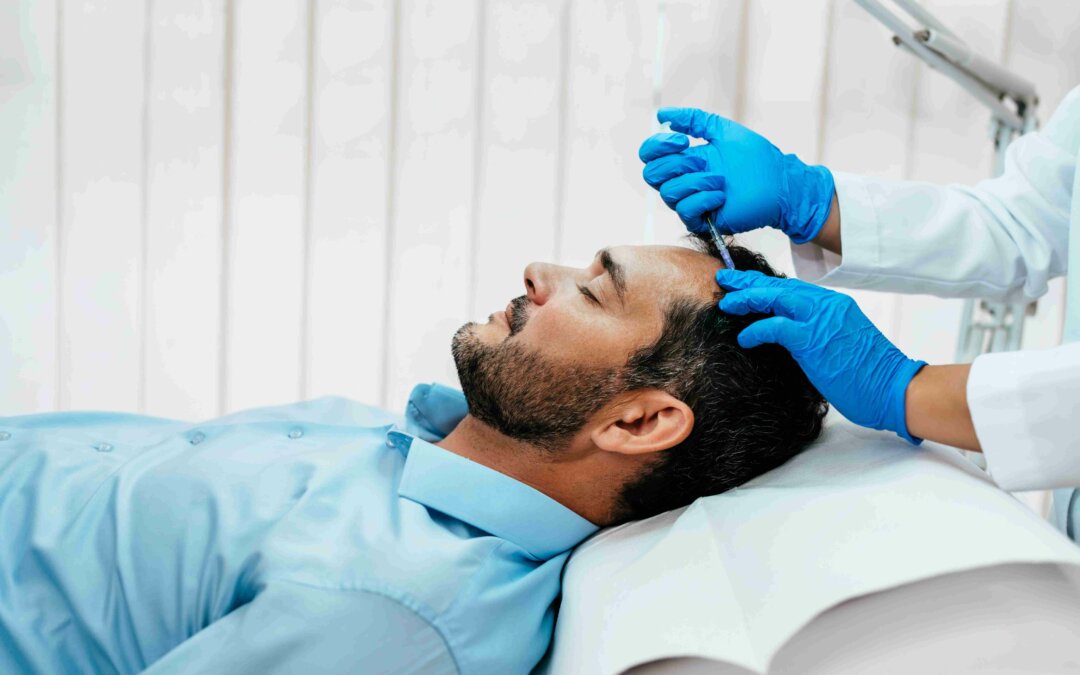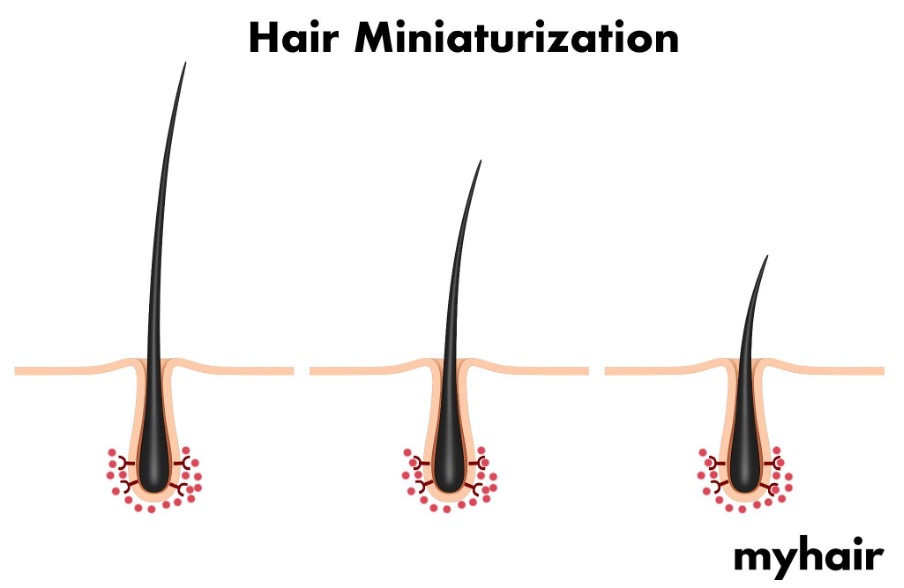There are a million different urban legends about hair loss. Girls have been told to brush their hair 100 times a day or their hair would start to fall out, while boys have been advised to avoid wearing hats. As people get older, these old wives’ tales have become even more absurd.
Masturbation, in particular, has been the target of some interesting urban legends. Excessive masturbation was thought to make hair sprout out of your palms, but was also thought to make the hair on your head fall out. It was even thought that masturbation could make you blind or go insane!
Does excessive masturbation cause hair loss?
Does masturbation cause hair loss? The short answer is no. Masturbation – whether it’s excessive or not – has nothing to do with hair loss. There have been no studies discussing any relationship between masturbation and hair loss. There’s no relationship between masturbation and hair growth, either. Masturbation causing hair loss symptoms is – fortunately – just a silly old myth.
Masturbation and hair loss have likely been associated with each other for two main reasons: hormones and protein. Some people have hypothesized that you lose excessive amounts of protein when you ejaculate. Others have thought that masturbation causes too much testosterone to build up in your body, or that losing semen in large amounts causes you to lose your life force. None of these are reasons for hair loss.
Your health, masturbation, and hair loss
While it’s true that there’s a hormonal component to some types of hair loss, masturbation doesn’t alter the levels of hormones circulating throughout your body. It’s also true that you lose protein when you ejaculate – but this happens in such small amounts that it shouldn’t cause you any health problems.
Does masturbation cause hair loss because of protein loss in your semen?
According to a review in the Journal of Andrology, there are roughly 5,040 milligrams of protein in every 100 milliliters of semen. Of course, no one’s releasing 100 milliliters of semen when they ejaculate.
Instead, the average amount of semen that’s released is typically between 2 and 5 milliliters. The same study reported that, on average, 3.4 milliliters of semen is released each time you ejaculate. If there are 5,040 milligrams of protein in every 100 milliliters of semen, this means that one ejaculate will have just 171.36 milligrams of protein: an amount that’s equal to 0.3 percent of your daily protein intake.
To give this a little more context, the Food and Drug Administration recommends for adults to consume 50 grams of protein each day as it’s one of the essential macronutrients you need to stay healthy. A large egg, for example, has about 6 grams of protein, while 3.5 ounces (100 grams) of chicken breast has 32 grams of protein.
Certain fruits and vegetables, in contrast, have much lower amounts of protein. One small apple has roughly the same amount of protein as one ejaculate of semen. Going by the USDA’s nutrition facts, you could also compare the amount of protein in your semen to the amount of protein in three baby carrots or two peanuts.
As you can see, the amount of protein you’re losing when you ejaculate is pretty negligible. Even if you were masturbating a dozen times a day, you still wouldn’t be losing a concerning amount of protein — which can be a good thing for some people!
If you’re still concerned, try incorporating some extra protein into your diet. There’s no need to wolf down a whole chicken — just incorporate more protein-rich plant products like lentils, hummus, soy products, or seitan into your usual meals.
Will masturbation cause hair loss because it affects your life force?
There’s nothing to show that the release of semen from your body affects vitality – though of course, you’re certainly burning calories when masturbating. An International Journal of Academic Research in Business and Social Sciences study reported that people are likely to burn a maximum of 250 calories per hour during sex (roughly 4 calories per minute).
Anyone who has masturbated knows that it can be quick as a flash or might feel like it’s taking forever. This means that you’re potentially burning as little as 20 calories, or as much as 250 calories while masturbating. Other than burning calories and the release of specific hormones, masturbation is unlikely to have much impact on your health.
Can masturbation cause hair loss by affecting your hormones?
Masturbation – or specifically, orgasms – cause the release of certain hormones. You’re probably aware that serotonin and dopamine (both commonly known as happiness chemicals) and oxytocin (frequently called the ‘love hormone’) are associated with orgasms. But, several other neurotransmitters and hormones are associated with orgasms, too.
Masturbation is sometimes thought to cause hair loss because of the involvement of testosterone. Testosterone is well-known as an important regulator of male sexual function. A study in the journal Fertility and Sterility says that testosterone levels can actually affect ejaculation, as well.
The confusion here might be because testosterone is related to hair loss. However, it only affects certain types, like male pattern baldness (which is actually the most common type). This type of hair loss is partially due to dihydrotestosterone (DHT), which is made from testosterone.
However, there’s nothing that shows that testosterone or DHT build up in your body based on how often you masturbate. Testosterone – and other hormones – circulate in your body regardless of whether or not you’re pleasuring yourself. Ultimately, if you’re experiencing hair loss symptoms, you may have high testosterone levels – but they haven’t been caused by too much sex or masturbation.
What is causing hair loss, then?
Hair loss is usually caused by a mixture of genetic and hormonal factors, but might also be due to stress, autoimmune or gastrointestinal problems, your diet, or medications that you’re taking. There are actually quite a variety of different reasons hair loss occurs. The reason for your hair loss will affect how the problem can be treated.
Takeaway
Talk to your doctor if you’re experiencing hair loss. Hair loss can occur for a variety of different reasons, and you’ll need to identify why you’re losing hair before you can treat the problem. The one thing you can guarantee, though, is that masturbating isn’t the cause of your symptoms. Even pleasuring yourself multiple times a day won’t increase your risk of hair loss.





